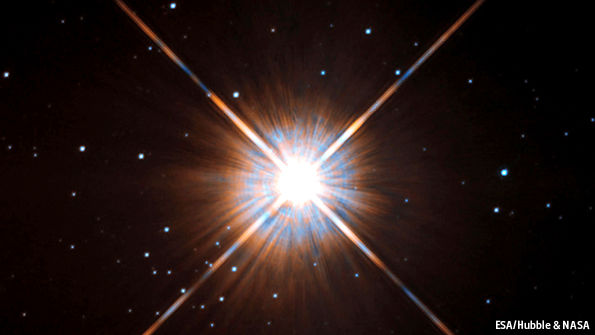Scientists have discovered an Earth-like planet orbiting a nearby star

“WE’VE been wondering what planet we’re first going to look for life on. Now we know.” Rory Barnes, of the University of Washington, puts it nicely. Proxima Centauri, the star closest to the sun, has a planet. That planet weighs more or less the same as Earth and is therefore presumably rocky. And it orbits within its parent star’s habitable zone—meaning that its surface temperature is likely to be between 0°C and 100°C, the freezing and boiling points of water at sea level on Earth.
A prize discovery, then, for astrobiologists such as Dr Barnes. And the discoverers are a transnational team of astronomers who have been using telescopes at the European Southern Observatory (ESO) in the Atacama desert, in Chile, for planet-hunting. Though they have not seen the new planet directly (they have inferred its existence from its effect on its parent star’s light), their paper in Nature describes what they have been able to deduce about it.
Proxima Centauri b, as it is known, probably weighs between 1.3 and three times as much as Earth and orbits its parent star once every 11 days. This puts its distance from Proxima Centauri…Continue reading
Source: Economist




